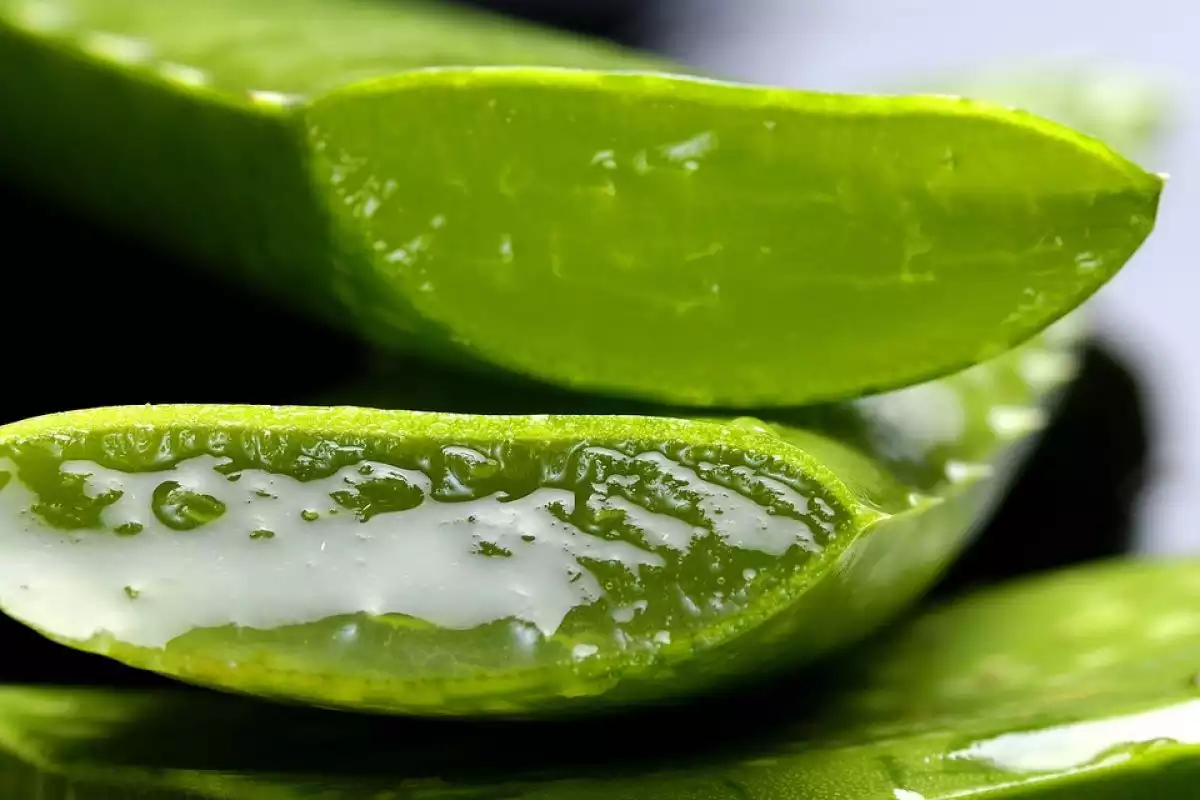
Aloe vera has become very popular in recent years. This plant has many properties and health benefits, especially for hair and for the face (acne).
However, some of the well-known aloe vera benefits are questionable. In this article, we analyze the scientific evidence regarding its most frequent uses, as well as the side effects they may have. Also, we take a look at the aloe vera plant care.
Benefits of aloe vera
Aloe vera —or Aloe barbadensis— is the scientific name for a perennial plant in the Asphodelaceae family. It is believed to be native to North Africa, Arabia, and India. It was subsequently exported to the rest of the world. Nowadays this plant is cultivated in tropical and temperate zones such as Latin America and Australia.
The aloe vera plant is resistant to many types of terrain and temperature, as well as pests. However, it is difficult that they survive in cold or very humid climates.
In Ancient history, aloe vera was used in Egypt, Greece, China, and India as a medicinal plant. It was mainly applied to the skin to facilitate wound healing. It is also said that Cleopatra and Nefertiti used this plant as a cosmetic.
The popularization of this plant's cultivation is mainly related to its use in the cosmetics industry; however, scientific research has not confirmed the beneficial properties of aloe in this field.
Aloe vera is used to make juice, gel, and hair masks, among others. It is also used as a natural remedy, cosmetic and dietary supplement.
Some of these properties have scientific evidence to support their use in certain cases, while others are based only on unproven traditional beliefs.
1. Face and skin
Aloe vera is credited with moisturizing properties that are the basis of its use as a beauty product and as a gel. The compounds contained in this plant stimulate the production of collagen, softening the skin and reducing wrinkles, facial redness and acne.
The studies on these effects are contradictory, so we cannot say that the healing properties of aloe vera lotions for the skin are scientifically proven. Nor has its usefulness for preventing sunburn been confirmed.
Homemade lotions with pure aloe vera can cause side effects such as skin irritation and inflammation. This plant also contains other compounds that are toxic.
2. Hair
The moisturizing properties of aloe vera have been used as hair products such as gel and masks.
Although aloe is credited with benefits for hair growth or for the treatment of dandruff and scalp infections, science has not yet confirmed these benefits.
3. Healing wounds
Aloe vera —usually in gel or lotion— increases collagen levels, causing wounds to heal better and faster.
Studies suggest that lotions that contain aloe may be effective in curing first- and second-degree burns and skin conditions such as genital herpes and psoriasis.
4. Dietary supplement
Some research suggests that including aloe in the diet reduces blood glucose and fat levels. Thus, its use as a dietary supplement may be useful for people with type 2 diabetes or hyperlipidemia.
It is important to keep in mind that the drop in blood sugar levels can be excessive if combined with medications with similar effects.
5. Laxative
The use of aloe vera as a laxative is widespread; however, while a small dose may be beneficial in relieving constipation, aloe laxative medications have been withdrawn from the market in some countries because they can cause tumors in the digestive system.
People with hemorrhoids, colitis, or irritable bowel syndrome should not consume this plant because it can cause diarrhea and abdominal pain, aggravating the symptoms of these disorders.
Aloe vera plant care
Like any other plants, aloe requires specific care to be able to grow properly.
Aloe vera can grow in a flower pot but it is better to cultivate it in fertile soil, and it also needs that the soil contains many nutrients (obtained from fertilizers of different types, depending on the soil), as well as enough fresh air.
The soil must be moist, but not too much. Also, overexposure to intense sunlight will damage the plant. It is recommended to keep it in an environment with an approximate temperature between 17ºC and 27ºC.
In hot periods it is advisable to water it approximately once a week, but a lower frequency is enough in less hot periods. If the leaves look dry or wrinkled the plant needs more water.
Aloe vera side effects
When applied on the skin, aloe may cause allergic reactions such as redness, swelling, itching, or burning. If we have never used this product, it is a good idea to try it on a small area of skin before applying it more widely.
When taken as a juice, it may cause constipation, diarrhea, abdominal cramps, red urine, or hepatitis. Its long-term use has also been linked to an increased risk of colorectal cancer.
It is not recommended to use aloe vera during pregnancy because it can stimulate contractions of the uterus, nor during lactation because of the possibility of causing gastrointestinal pain to the baby.
Among the benefits of aloe is the reduction of blood sugar and potassium levels, so it can decrease the effectiveness of insulin in people with diabetes and other medications to treat heart diseases such as digoxin and digitoxin.
